Related Research Articles
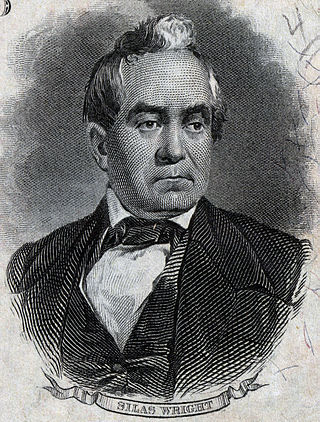
Silas Wright Jr. was an American attorney and Democratic politician. A member of the Albany Regency, he served as a member of the United States House of Representatives, New York State Comptroller, United States Senator, and Governor of New York.
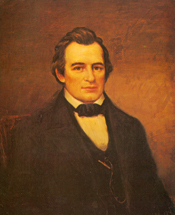
John Winston Jones was an American politician and lawyer. He served five terms in the United States House of Representatives from 1835 to 1845. He served as Speaker of the House in both the U.S. House of Representatives (1843–1845) and the Virginia House of Delegates (1847).
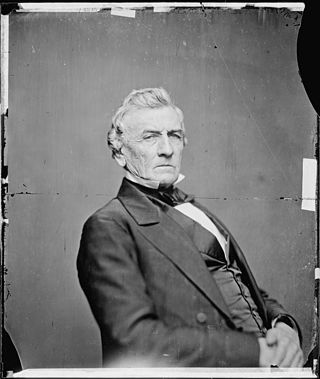
Benjamin Fitzpatrick was the 11th Governor of the U.S. state of Alabama and a United States Senator from that state. He was a Democrat.

Aaron Venable Brown was an American politician. He served as the 11th Governor of Tennessee from 1845 to 1847, and as United States Postmaster General from 1857 until his death in 1859. He also served three terms in the United States House of Representatives, from 1839 to 1845. During the Mexican–American War, Brown's statewide call for 2,800 volunteers was answered by over 30,000, helping solidify the state's reputation as the "Volunteer State."
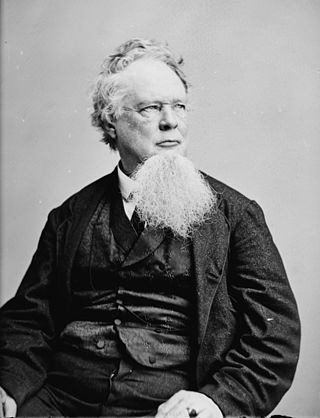
William Gilmore Simms was a poet, novelist, politician and historian from the American South. His writings achieved great prominence during the 19th century, with Edgar Allan Poe pronouncing him the best novelist America had ever produced. He is still known among literary scholars as a major force in antebellum Southern literature. He is also remembered for his strong support of slavery and for his opposition to Uncle Tom's Cabin, in response to which he wrote reviews and the pro-slavery novel The Sword and the Distaff (1854). During his literary career he served as editor of several journals and newspapers and he also served in the South Carolina House of Representatives.

Robert Young Hayne was an American politician. He served in the United States Senate from 1823 to 1832, as Governor of South Carolina 1832–1834, and as Mayor of Charleston 1836–1837. As Senator and Governor, he was a leading figure in the Nullification Crisis and, along with John C. Calhoun and James Hamilton Jr., a vocal proponent of the doctrines of states' rights, compact theory, and nullification; his 1830 debate in the Senate with Daniel Webster is considered a defining episode in the constitutional crisis which precipitated the American Civil War.

William Lowndes Yancey was a political leader in the Antebellum South. As an influential "Fire-Eater", he defended slavery and urged Southerners to secede from the Union in response to Northern antislavery agitation.

William Segar Archer was a politician, planter and lawyer from Amelia County, Virginia who served several times in the Virginia House of Delegates, as well as in the United States House of Representatives and the United States Senate.

Francis Thomas was an American politician who served as the 26th Governor of Maryland from 1842 to 1845. He also served as a United States Representative from Maryland, representing at separate times the fourth, fifth, sixth, and seventh districts. He also served as United States minister to Peru from 1872 to 1875, and speaker of the Maryland House of Delegates in 1829.

William Hawkins Polk was an American politician and a member of the United States House of Representatives for Tennessee's 6th congressional district from 1851 to 1853. He was the younger brother of President James K. Polk. Prior to his election to Congress, he had been a member of the Tennessee House of Representatives (1841–1845), served as U.S. Minister to the Kingdom of the Two Sicilies (1845–1847), and fought as a major in the Mexican–American War.
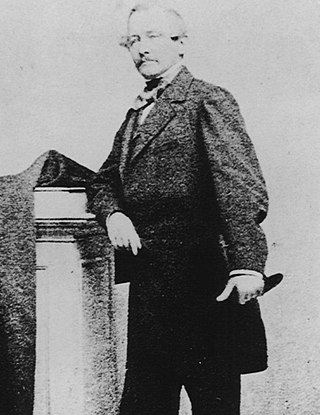
Abraham Van Buren II was an American soldier and the eldest son of Martin Van Buren, the eighth President of the United States and his wife, Hannah Hoes Van Buren. A career soldier and veteran of the Second Seminole War and Mexican–American War, Van Buren was named in honor of his paternal grandfather Abraham Van Buren, an officer in the Albany County militia during the Revolutionary War.

Whitemarsh Benjamin Seabrook was the 63rd Governor of South Carolina from 1848 to 1850.
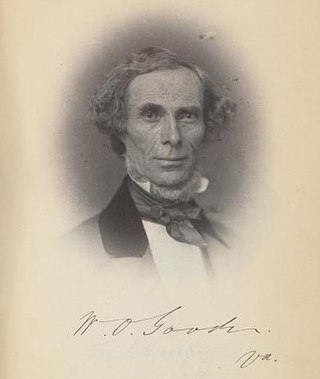
William Osborne Goode was an American politician, slave owner, and lawyer from Virginia.

Albert Clinton Horton was a Texan politician, and the first Lieutenant Governor of Texas serving under Governor James P. Henderson.
Events from the year 1780 in the United States.
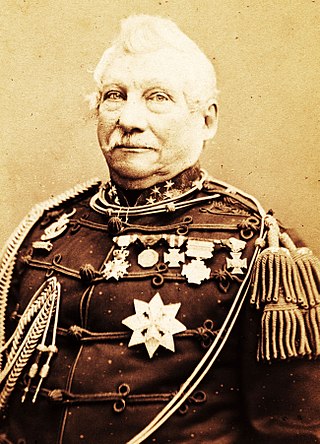
Johannes (Jan) van Swieten was a Dutch General and politician.
William DuBose was an American plantation owner, lawyer, and politician who served as lieutenant governor of South Carolina from 1836 to 1838.
References
- ↑ https://schistory.org/wp-content/uploads/2015/06/Cain-William-family-papers-281.00.pdf South Carolina Historical Society, biographical note on Cain
- ↑ https://south-carolina-plantations.com/berkeley/somerset.html Info on Somerset
- ↑ https://south-carolina-plantations.com/berkeley/somerton.html Info on Somerton
- ↑ https://library.uncg.edu/slavery/petitions/results.aspx?s=3&sid=210 Race & Slavery Petitions Project